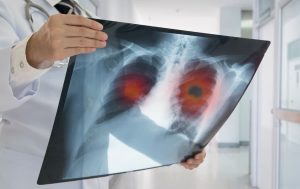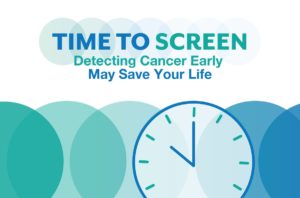
How Common Is Lung Cancer?
Lung cancer is the second most common type of cancer affecting men and women in the United States, excluding skin cancers. It also causes more
HIPAA Alert: Potential Data Breach Learn More
Questions on Oncology, Hematology and/or Infusion Clinical Services due to COVID-19 Crisis – CALL 833-698-1623
Important Information for Our Patients Regarding the Coronavirus.
RCCA Providing Area Cancer Patients with Access to Care During Coronavirus Outbreak
RCCA Offering Patients Virtual Visits During Coronavirus Pandemic
The medical and research communities have identified several risk factors for ovarian cancer. Understanding these risk factors, which may increase the chances of developing ovarian cancer, enables women to pay informed attention to any signs or symptoms of cancer that may occur, and to promptly consult their Ob/Gyn or other healthcare professional.
The doctors of Regional Cancer Care Associates (RCCA) are experienced in treating patients with ovarian cancer. Multiple treatment options are available at RCCA’s 25 care centers throughout New Jersey, Connecticut, Maryland, and the Washington, D.C., area.
Cancers are genetically mutated cells that can grow uncontrollably and may form tumors. Ovarian cancer arises in the ovaries, a pair of female reproductive organs that are the source of eggs and that also produce the hormones estrogen and progesterone. The ovaries are located on either side of the uterus and are connected to the uterus by the fallopian tubes. There are three main types of ovarian cancer tumor:

Regular medical checkups with physical exams are recommended for early detection of ovarian cancer. Catching the disease early is essential, as the five-year survival rate for ovarian cancer at the localized stage is 93%. Once the disease progresses to distant areas of the body, however, this number drops to 31%. In addition, if a woman is at elevated risk for ovarian cancer, her physician may recommend a transvaginal ultrasound or special blood tests.
Risk factors for ovarian cancer include:
The incidence of ovarian cancer is higher in women ages 55-64 years old than in younger women. In fact, ovarian cancer is rare in women younger than 40 years old, although women of all ages can develop the disease.
Certain inherited genetic conditions, such as mutations in the BRCA1 or BRCA2 gene, or those associated with Lynch syndrome, may be factors. Women with an Eastern European or Ashkenazi Jewish background may also be at a higher risk for ovarian cancer.
Various factors related to pregnancy and giving birth can increase the risk of ovarian cancer. These include:
This condition affecting the female reproductive system occurs when tissue from the uterine lining grows outside the uterus.
Studies show that ovarian cancer may be more likely to develop in women who take estrogen alone, or estrogen with progesterone, for periods longer than five years after menopause.
If a woman has had another type of cancer, or if she has close family members who have been diagnosed with ovarian cancer, cancers of the breast, uterus, or colon, she may be at increased risk of developing the disease.
Some studies have shown that in vitro fertilization may increase the risk for a few subtypes of ovarian tumors; however, these tumors are not considered to be at high risk for malignancy.
There may be an association between smoking and mucinous ovarian cancer, a rare subtype of the disease. Smoking may also increase the risk of other cancers, such as lung cancer.
Studies are inconclusive but have suggested a potential increase in the risk of ovarian cancer in women with a body mass index (BMI) of 30 or higher.
This condition leads to enlarged ovaries and may increase the risk of ovarian cancer.
The expert oncologists of Regional Cancer Care Associates provide a wide range of services to women with ovarian cancer, ranging from a second opinion to development and implementation of a comprehensive treatment plan that draws on the latest evidence-based therapies. Treatment options may include one or more of the following:
Patients who have been diagnosed with ovarian cancer and are seeking treatment should contact Regional Cancer Care Associates. Our expert cancer and blood disorder specialists will develop a personalized treatment plan and guide you through every step of the process. To learn more, contact us or visit one of our office locations conveniently located throughout New Jersey, Connecticut, Maryland, and the Washington, D.C., area.
At Regional Cancer Care Associates (RCCA), we feature the best of modern oncologic medicine. We meet the highest standard of cancer care in both quality and safety. At the same time, we lead with our hearts, offering an environment characterized by compassion. We focus on you, individually, and work with you and your family to ensure your care is second to none.
For more information, please call (844) 346-7222. You can schedule an appointment by calling the RCCA location nearest you.

Lung cancer is the second most common type of cancer affecting men and women in the United States, excluding skin cancers. It also causes more

Regional Cancer Care Associates (RCCA), one of the nation’s largest cancer care networks, offers Marylanders access to some of the nation’s leading oncologists and hematologists.

Why there’s never been a better time to schedule deferred mammograms, skin examinations, colonoscopies, and other potentially life-saving cancer screenings.
When standard cancer treatments aren’t providing the results you want, clinical trials may offer hope. Our physicians use clinical trials to study new treatments, helping transform cancer care for the better. You can enroll in a clinical trial to try groundbreaking treatment plans at zero cost to you.

Regional Cancer Care Associates is one of fewer than 200 medical practices in the country selected to participate in the Oncology Care Model (OCM); a recent Medicare initiative aimed at improving care coordination and access to and quality of care for Medicare beneficiaries undergoing chemotherapy treatment.